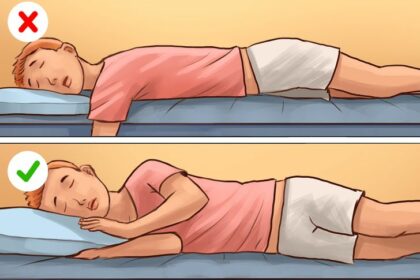How to Use Salt to Keep Ants at Bay and Out of Your Home
Ant infestations can be a frustrating and persistent problem in many households. While there are numerous commercial products available to combat these tiny invaders, many homeowners prefer natural and non-toxic solutions. One such effective and easily accessible remedy is common table salt. This article will explore various methods of using salt to repel ants and prevent them from entering your home, providing a safe and eco-friendly alternative to chemical pesticides.
Why Salt Works Against Ants
Salt, particularly sodium chloride, disrupts the water balance in ants’ bodies. When ants come into contact with salt, it dehydrates them by drawing moisture from their exoskeletons, leading to their eventual death. Additionally, salt can act as a deterrent, creating barriers that ants are reluctant to cross. Understanding these mechanisms helps in effectively employing salt as an ant repellent.
Methods of Using Salt to Repel Ants
1. Direct Application of Salt
One of the simplest methods to deter ants is by directly applying salt in areas where they are commonly seen or where they might enter your home. Here’s how you can do it:
- Identify Ant Trails and Entry Points: Observe where the ants are coming from. Common entry points include cracks in walls, windowsills, doorways, and gaps around plumbing.
- Sprinkle Salt: Liberally sprinkle table salt directly onto these trails and entry points. The salt crystals will act as a barrier, deterring ants from crossing.
- Repeat as Necessary: Reapply the salt regularly, especially after cleaning or if you notice new ant activity.
2. Salt and Water Solution
A saltwater solution can be an effective method for areas where sprinkling dry salt is impractical. This solution can be used for wiping surfaces or spraying into crevices. Here’s how to prepare and use it:
- Mix the Solution: Dissolve about one part salt in four parts water. Stir the mixture until the salt is completely dissolved.
- Apply the Solution: Using a spray bottle, apply the saltwater solution to areas where ants are commonly seen. You can also use a cloth to wipe down surfaces with the solution.
- Focus on Entry Points: Pay particular attention to door frames, windowsills, and other potential entry points.
- Repeat Application: Regularly reapply the solution, especially after cleaning or rain, to maintain its effectiveness.
3. Salt Barriers
Creating a salt barrier can be an effective long-term solution to prevent ants from entering specific areas of your home. This method works well for both indoor and outdoor applications.
- Create a Line of Salt: Pour a continuous line of salt around the perimeter of areas you want to protect, such as kitchen countertops, pantries, or outdoor patios.
- Seal Cracks and Crevices: If possible, use caulk to seal any cracks or crevices that ants might use to enter your home. Then, apply a line of salt along the sealant for added protection.
- Maintain the Barrier: Regularly check the salt lines and replenish them as needed, especially after cleaning or exposure to water.
4. Salt Bait Trap
A salt bait trap can help to attract and kill ants. This method is particularly useful for dealing with a larger infestation.
- Prepare the Bait: Mix equal parts of salt and sugar. The sugar will attract the ants, while the salt will kill them.
- Place the Bait: Place small amounts of the mixture in shallow containers or directly onto pieces of paper. Position these traps in areas where ants are commonly seen.
- Monitor and Refill: Check the bait traps regularly. Refill or replace them as needed until the ant activity subsides.
Benefits of Using Salt
1. Non-Toxic and Safe
Unlike chemical pesticides, salt is non-toxic and safe to use around children and pets. It does not pose health risks when used properly, making it an excellent choice for households with young children or animals.
2. Environmentally Friendly
Salt is a natural substance that does not harm the environment. It does not contribute to chemical pollution or negatively impact non-target organisms, making it an eco-friendly pest control option.
3. Cost-Effective
Salt is inexpensive and readily available in most households. Using salt as an ant repellent can save money compared to purchasing commercial pesticides and pest control services.
Limitations of Using Salt
While salt can be effective in repelling and killing ants, it is not a foolproof solution for all situations. Here are some limitations to consider:
- Limited Range: Salt is effective in small, targeted areas but may not be sufficient for widespread infestations or outdoor use.
- Frequent Reapplication: Salt barriers and solutions need to be regularly reapplied to maintain their effectiveness, especially in areas exposed to water or frequent cleaning.
- Potential Residue: Using salt can leave behind a residue that may require cleaning, particularly on indoor surfaces.
Combining Salt with Other Natural Remedies
For enhanced effectiveness, consider combining salt with other natural ant repellents. Here are a few complementary methods:
- Vinegar: A solution of vinegar and water can be sprayed alongside salt applications to create a potent ant deterrent.
- Essential Oils: Oils such as peppermint, tea tree, and eucalyptus are known to repel ants. Adding a few drops to your saltwater solution can increase its effectiveness.
- Citrus Peels: Placing citrus peels near entry points can also help to deter ants, as they dislike the strong scent.
Conclusion
Using salt to repel ants is a practical, cost-effective, and environmentally friendly method for managing ant infestations. By understanding how salt affects ants and employing the various methods outlined in this article, homeowners can effectively keep ants at bay and enjoy a pest-free home. While salt may not be a complete solution for every situation, it can be a valuable tool in your natural pest control arsenal. Regular monitoring and combining salt with other natural remedies can enhance its effectiveness and provide long-lasting results.




